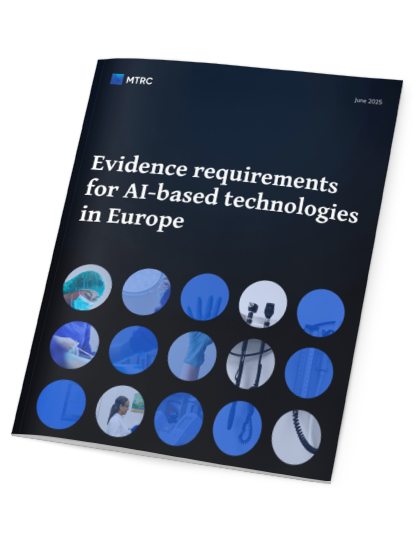
Artificial intelligence (AI) technologies are transforming healthcare by enabling faster, more accurate diagnoses, supporting clinical decision-making, and improving efficiency across services. From radiology and pathology to emergency care and population screening, AI offers solutions to address growing demands on health systems and alleviate workforce shortages. The integration of AI technologies into healthcare delivery offers the potential to improve diagnostic accuracy, increase efficiency, and address workforce shortages.
Across Europe, interest in deploying AI-based decision-support tools is growing rapidly, particularly in areas such as radiology, stroke imaging, endoscopy, and cancer screening. However, health technology assessment (HTA) agencies consistently emphasize that adoption should be guided by robust, context-specific evidence that demonstrates clinical benefit, safety, and cost-effectiveness.
In this White paper, we reviewed evidence requirements for AI-based technologies as identified in five recent European HTA assessments including urgent-care fracture detection (NICE, UK), hyperacute stroke imaging (NICE, UK), colonoscopic polyp detection (Danish Health Technology Council), and breast cancer screening programs (OSTEBA in Spain and SBU in Sweden). These diverse cases highlight both common expectations and important differences in how national HTA bodies evaluate AI solutions.
By synthesizing insights across these European assessments, this White Paper aims to clarify the evolving evidence expectations for stakeholders seeking to enable safe, effective, and sustainable integration of AI technologies into clinical practice.
Request White Paper
Request analytical White Paper to gain strategic insights into Europe's evolving evidence landscape for AI in healthcare
